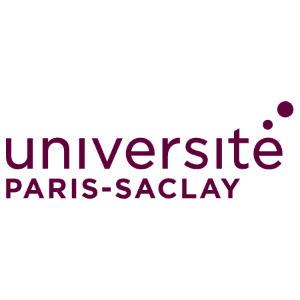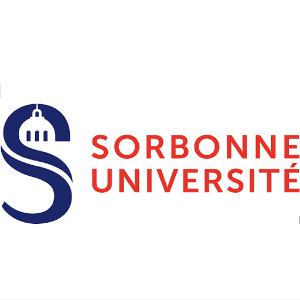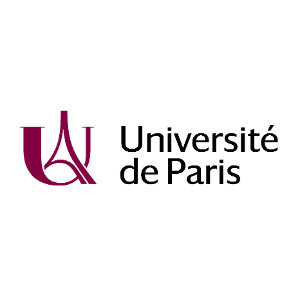Explore By
 Exams
Exams
 Countries
Countries
 Expenses
Expenses
 Universities
Universities
France is the most sought-after overseas study destination after the United Kingdom and Germany. Technologically advanced but at the same time have its roots grounded in history, it is reflected in their culture and traditions, art and museums, and cuisine, making it an enriching experience for international students.
France has more than 3,500 higher education institutions, including 77 publicly-funded universities for all degree programs, Schools of Architecture, and Grandes Ecoles (Great Schools) offering 5-year diplomas (equivalent to a master’s degree) in science, business, and arts.
France has maintained the status of a European and global center of philosophy, arts, culture, and science for centuries and is currently an international business and technology leader. France offers a broad spectrum of courses in arts, business management, fashion, and IT & Engineering.
France is the ideal destination to study abroad for your degree, thanks to its rich culture, gastronomy, architecture, and thriving student life! Studying in France will allow students to learn the language and gain a cultural perspective.
The admission process differs from college to college, but the following documents remain/general requirements remain staple for admission to higher education in France.
Copy of a valid passport
Proof of English proficiency (TOEFL/IELTS/C1 Advanced/C2 Proficiency)
Proof of French language proficiency (DELF or DALF & TCF)
Letters of recommendation
Statement of purpose
Academic transcripts from the previous institution
France boasts 36 universities in the QS World University Rankings, ten universities out of those rank within the world’s top 300. The nation’s two leading universities - Université PSL and Ecole Polytechnique, are ranked #26 and #61, respectively, in QS Rankings 2022. France is also home to the esteemed Grandes Ecoles (Great Schools) - known for its highly selective admissions, prestigious & rewarding degrees, and academic excellence.

Université Paris-Saclay
Saint-Aubin, Paris
Know More

Sorbonne University
Paris, Paris
Know More

University of Paris
Paris, Paris
Know More
France is at the forefront of technological evolution in several fields. France has always been able to produce some of the greatest minds in Business, Economics, Science, and Art.
Hence, students can be sure that they will join the ranks of other experts in the field. France ranks #2 in Europe and #4 in the world in Information Technology.
Also, France is perhaps one of the most traditionally rich countries in Europe, with a rich flavor of art and tradition; it has become the most sought-after destination for international students who wants to study art and fashion.
For students who are french citizens or permanent residents of a country within the EU, here are some details -
Level of Education | Tuition fees |
Undergraduate Degree | 170 EUR |
Graduate Degree | 243 EUR |
Doctoral Degree | 380 EUR |
For students who are from outside of the EU -
Level of Education | Tuition fees |
Undergraduate Degree | 2770 EUR |
Graduate Degree | 3770 EUR |
Doctoral Degree | 380 EUR |
Living Expenses
Expenses | Average cost per month |
Electricity, Gas, Internet etc. | €60 |
Books and Supplies | €50 |
Food/Groceries | €250 |
Travel Card/Transport Pass | €7 |
Recommended Blogs

Updated on Nov 02 ,2023

Updated on Aug 14 ,2023

Updated on Apr 07 ,2023
The French government has been working on making offers that are more attractive to international students. The government wants to increase the number of international undergraduates and postgraduates attending the schools and universities in the country.
Government-funded scholarships to study in France
Eiffel Scholarship Program of Excellence
Erasmus+
The Chateaubriand Fellowship
Non-government Scholarships to Study in France
AIFS Study Abroad Scholarship, Grants, and Financial Support
The Fulbright Scholarship
Alexandre Yersin Scholarship
Civil Society Leadership Awards
Apart from the scholarships mentioned above, various university-specific scholarships are available for international students.
Recommended Blogs

Updated on Jan 22 ,2024

Updated on Dec 25 ,2023

Updated on Nov 21 ,2023
The most stressful part of moving abroad for higher education can be accommodation. Whatever type of accommodation options you may prefer, the thumb rule is to start scouting for housing as soon as possible.
On-campus Accommodation
University Residence Halls:
These students' residences are owned and managed by France's Regional Center for student services known CROUS. They assist students, so they can enjoy low rents, fully furnished apartments, and a built-in social life.
Average cost: 200 EUR
The average cost in Paris is 400 EUR
Off-campus Accommodation
Type | Amenities | Cost |
Studio/Multi-room apartment: Renting private apartments is another great option for students to immerse themselves in French Culture. Students may choose to live alone or share the apartment with other students. |
| €400 to €800 |
Homestay: Considered one of the safest types of accommodation, where students will be leaving with French. families right in their homes. |
|
|
The French Government offers international students two types of visas -
Court sojourn pour études - The short stay visa for 90 days
Visa étudiant long séjour valant titre de séjour - The long stay visa for more than 90 days
Procedure
If students are from EU/EEA countries, then there is no visa requirement for studying at any academic level. Students may freely enter the country for education or internship regardless of the length of their stay. However, students need medical insurance to cover them in any emergency.
If students are from non-EU/EEA countries, a long-stay visa is required for studying in France. There are two types of French student visas available.
VLS-TS - Long-term visa used as a resident permit: The visa allows international students to stay in France for one year without requesting a resident permit. Depending on students' level of studies, the visa is further categorized into three types -
The Student VLS-TS Visa - For bachelor's and master's studies
The Talent Passport VLS-TS Visa - For Doctorate Studies
The Internship VLS-TS Visa - For internships
VLS-T - The Temporary Long-Term Visa: The visa doesn't need validation upon arrival and cannot be renewed. With this type of visa, students can stay in France for one year for educational purposes.
Documentations
Paperwork and documentation are an important part of studying in France for higher education. To ensure a hassle-free admission process, students must keep the following documents ready with them at all times.
Visa application form
Passport-type photographs
Valid passport and copies of previous visas
University's official enrolment/acceptance letter
Proof of financial means (around 615 EUR per month)
Airline ticket/reservation showing date of departure
Medical insurance (300–715 EUR/year)
Documents stating the accommodation arrangement
French language proficiency certificate (if you have enrolled in a course that requires the language)
Proof of payment of the visa fee (50–100 EUR)
Proof of civil status (if applicable).
France is the world's fifth-largest economy and is home to 31 of the world's 500 most powerful companies. Airbus, LVMH, Orange, Danone, Total, L'Oréal & Sanofi are some of the leading French organizations of international repute.
Part-time Work Opportunities
International students can seek part-time jobs in France. However, the nature and timing of the work should not interfere with the studies. The restriction on the period is 20 hours per week. During semester breaks and holidays, students are allowed to work full-time. The hourly wage for students working part-time is 9.67 Euros per hour. Students should try to seek this opportunity to gain real-world exposure and networking.
Full-time Work Opportunity / Post-study Work Opportunity
France has two separate policies for international students who wish to stay in France to seek employment.
Career opportunities for international students post-graduation
After graduation in France, an international student can stay back only when they have paid employment. Students who are already employed are eligible to apply for a residence permit. This law is applicable to both undergraduate and postgraduate students.
Career opportunities for international students post Master's studies.
In France, however, rules get a little relaxed for postgraduate students. Unlike the undergraduate pass-outs students, who are only entitled to get a residence permit after having paid employment, the postgraduate students are eligible to apply for a temporary residence permit for a duration of about 12 to 24 months, which is a non-renewable temporary visa. This visa does not allow international students to be recruited in France permanently.
If students are successful in finding work that gives them a salary of at least 1.5 times the minimum wage, then they can contact their local administration to change their status from student to employee and allows them to work full-time. Students will get a post-study work visa in France.
Recommended Blogs

Updated on Apr 25 ,2024

Updated on Nov 06 ,2023

Updated on Sep 12 ,2023
France is ranked #3 in Europe as the most sought-after destination for international students, right behind the likes of the U.K. and Germany. The quality of education comes at a quality price; however, it is not as expensive as in the U.S. or U.K.
If students are from EU/EEA countries, keep the following in mind -
Tuition fees at France's public universities have a variable cost that depends on study level.
For bachelor's program: €170/year
For Master's degree: €260/year.
If students are from non-EU/EEA countries
From the 2019/20 academic year, non-EU/EEA students will begin paying higher tuition fees.
For bachelor's program: €2,770/year
For Master's program: €3,770/year
France was one of the first non-English speaking European countries to offer English-taught programs in the universities. Today, France offers 125 undergraduate and 1200 master's programs. While undergraduate programs shy away from offering English language classes, more graduate programs in France offer English-language degree programs. Most Master's programs in subjects other than French literature allow students to do some or all of their coursework in English. However, we recommend students learn French, which will also open the doors to jobs at local companies & organizations in France and various multinational corporations.
France is perhaps one of the most traditionally rich countries in Europe, with a rich flavor of art and tradition; it has become the most sought-after destination for international students who wants to study subjects like arts, design, and architecture.
The best universities to study architecture in France
LISAA School of Design
Université Grenoble Alpes.
Kent School of Architecture and Planning

Updated on Aug 11 ,2022

Updated on Mar 02 ,2022

Updated on Jan 27 ,2022
TOEFL
English language proficiency test
PTE
The computer-based English test
SAT
Standardized test administered by College Board
GRE
Admission test for graduates
GMAT
Test for Business and Management Programs
Confused which university to choose?
Use our recommendation engine to analyze your profile and recommend the most desirable programs that fit you.
Get Recommendation